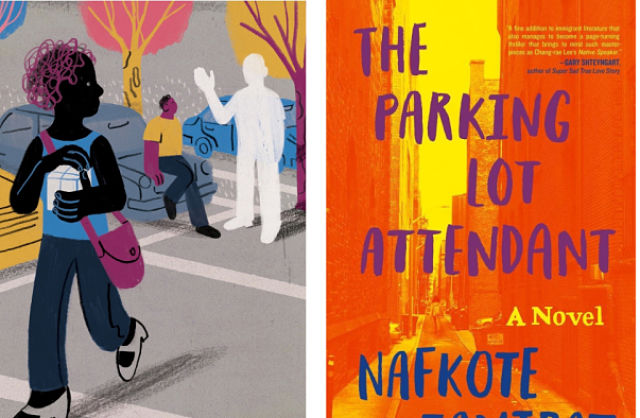 The following is a New York Times review of Ethiopian American writer Nafkote Tamirat’s new novel 'The Parking Lot Attendant.' (Image via NYT)
The following is a New York Times review of Ethiopian American writer Nafkote Tamirat’s new novel 'The Parking Lot Attendant.' (Image via NYT)
The New York Times
The Mysterious ‘Parking Lot Attendant’ at the Center of a Web of Intrigue
At the start of Nafkote Tamirat’s debut novel, “The Parking Lot Attendant,” the narrator — a 17-year-old girl who is never named — has recently arrived with her father on the remote subtropical island of B—, where they’ve found uneasy refuge in a commune. They’ve fled some unspecified trouble in Boston, but the trouble seems to have followed them. The girl is more or less a pariah. She’s miserable and ill at ease, which seems reasonable under the circumstances. The commune’s managerial arrangements can only be described as sinister.
The colonists, as they call themselves, live by rigid rules set out by a group of anonymous leaders. The only book allowed is the Bible, in Amharic. (Fortunately, the narrator is fluent; although she was born in the United States, her parents emigrated from Ethiopia.) The commune on B— is by no means a permanent settlement; the colonists are preparing for a move to a promised land in Africa. They live in limbo and in a state of ever-increasing tension.
From here, Tamirat takes us back to the narrator’s life in Boston. If the girl had friends before she met Ayale, the titular parking lot attendant, they’re not mentioned. Although she dabbled in theater, her focus on school was otherwise absolute. She was raised by her parents, but never both at the same time: Her father walked out while her mother was pregnant, and didn’t return for six years. When he reappeared, her mother promptly abandoned her, and after that the narrator grew up in her father’s basement apartment.
Her father is pensive by nature and uncomfortable around other people, and while there’s good will on both sides, his rapport with his daughter is far from effortless. Still, he tries. After an awkward encounter with an irritating new monk at their church, he starts skipping services in favor of a weekly brunch with his daughter, and their conversations over eggs and pancakes take on a deep importance to her: “Only at brunch could I see him as someone who would stay. At all other times, I prepared myself for his inevitable departure, after which there would be no more parents: I would be alone.”
—
Join the conversation on Twitter and Facebook.

























